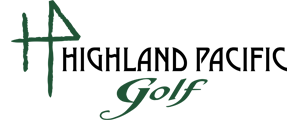Bird Count January 28, 2021
Late January is typically a slow period for bird activity here. Most of our local nesters are far south by now, as are those birds that nest in northern BC and Alaska. Moreover, few if any birds are yet to begin their northward return migration. Consequently, species diversity and total numbers were low today, as expected.
Total Birds Identified: 163
Total Species Identified: 16
New Species Added: Nil
An encouraging highlight was a male American Kestrel, our smallest falcon. It was perched atop a tall snag near Highland 6 green. This could be the same bird seen earlier in the winter, and one of the pair that I believe nested in 2021 just inside Francis King Park, not far from the Highland 4 green. If that was a successful nesting, we could eventually see additional kestrel nesting attempts toward the south end of the golf course. Nest boxes designed for this species should be installed. One or two suitable sites will be identified between Pacific 1 and Pacific 4, preferably 500 to 1000 metres south of the Francis King site to reduce intraspecific competition. If numbers of the invasive European Wall Lizard continue to be high here in the spring and summer, that food source, together with large insects and small birds and mammals could help to support two nesting pairs on or near the course.
Two individual Hermit Thrushes were seen. This species typically nests north of us, in northern and central BC, Haida Gwai, Yukon and Alaska, but rarely on Vancouver Island. It prefers mixed coniferous forests with a dense understorey. Its drab brown and reddish-brown colours add to its secrecy. A few stop over and stay here for winter. Its flute-like or piccolo-like breeding song rises and then falls slightly, is easy to identify, but is not heard here in winter.
Some of our common wintering ducks have returned: Ring-nected (24), Bufflehead (4), and American Widgeon (60), mostly on the driving range pond. Look for others to join them.
A single Eastern Gray Squirrel was seen. This invasive species could pose problems for our nest box program.
